In its former life as the Millennium Dome, the O2 housed a diamond collection which attracted one of Britain’s most spectacular heists. Last night featured something considerably more valuable – the composer Ennio Morricone on tour, celebrating 60 years of music, accompanied by the magisterial forces of the Czech National Symphony Orchestra, the Kodály Choir from Hungary and the Csokonai National Theatre Choir. In his 87th year Morricone is small, deliberate, but surprisingly youthful and snazzily dressed in black.
His baton floated in the air and music of aching melancholy lifted from the orchestra. "The Legend of 1900" began with discrete plucked notes on the harp set against a tense, restive hum of strings. A violin sobbed and implored, the trumpets played abstract fragments and then the brass and strings opened the expansive melody as if a vast cloud bank was parting to let the sun pour through. It was thrilling, inspiring and touching. This orchestra, under Morricone’s baton, was wringing exquisite nuances from his scores. A bluesy piano came tumbling through the romantic melody, as fitting as a drunk at a wedding.
![]() As with so much of the composer’s work, "Chi Mai" is a synthesis of classical and pop idioms with a virile, funky electric guitar, played by Rocco Zifarelli, moving among the strings like a wolf weaving through a flock of sheep. The pianist Leandro Piccioni was playing grand piano with one hand, electric keyboards with the other. "Metti Una Sera a Cena" is a sunny bossa, bringing warm Rio beaches to wintery London with unison flutes, plump electric guitar and virtuoso drumming by Massimo D’Agostino. It was a rising spiral of breezy celebration and the audience was unable to resist – the first applause of the evening broke out prematurely. Morricone waited, poised, patient, intent, and as soon as it stopped he moved tirelessly on through his astonishing catalogue.
As with so much of the composer’s work, "Chi Mai" is a synthesis of classical and pop idioms with a virile, funky electric guitar, played by Rocco Zifarelli, moving among the strings like a wolf weaving through a flock of sheep. The pianist Leandro Piccioni was playing grand piano with one hand, electric keyboards with the other. "Metti Una Sera a Cena" is a sunny bossa, bringing warm Rio beaches to wintery London with unison flutes, plump electric guitar and virtuoso drumming by Massimo D’Agostino. It was a rising spiral of breezy celebration and the audience was unable to resist – the first applause of the evening broke out prematurely. Morricone waited, poised, patient, intent, and as soon as it stopped he moved tirelessly on through his astonishing catalogue.
Next were the Western themes. In "The Man with the Harmonica", the harmonica, played superbly by Jan Pistora, sawed the air of the arena, savage and sour, accompanied by fuzz guitar. "The Fortress" had the mournful longing of a trumpet rhapsody, shattered echoes of a bugle call and the choir rising like the sea. The eerie fluttering of a clarinet introduced "The Good, the Bad and the Ugly" and then a double act of clarinet and bassoon accompanied the galloping stampede of the orchestra. "Stage Coach to Red Rock" from Tarantino’s The Hateful Eight (Tarantino photographed with Morricone, above) consists of brooding bass figures on the bassoons and fierce muttering on the tuba accompanied by spare, restless cymbal percussion. Then a descending flute pierced the music like a bullet hole forcing a shaft of light into a darkened room. Muted trumpets, agitated strings and tom-toms paint a picture of menace. The music was a revelation. It’s also a BAFTA winner.
Morricone was performing in Dublin on Sunday and couldn’t collect his BAFTA award for The Hateful Eight so it was presented to him on stage last night. He accepted the statuette gingerly, as though it might explode. But the explosion came elsewhere. "The Ecstasy of Gold" was threatening and regretful, as beautiful and dangerous as the desert it evokes. Soprano Susanna Rigacci’s voice ascended to extraordinary heights and Morricone set off the whole orchestra in a controlled detonation. Stunning and unforgettable: in his ninth decade, the maestro has never been better.








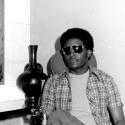
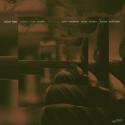
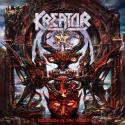

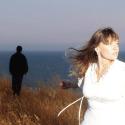
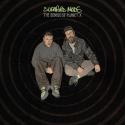

Add comment